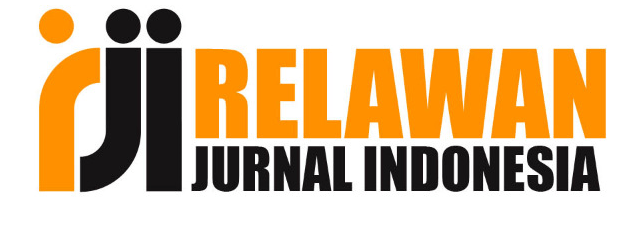GASPOL (HENTIKAN GERAKAN STIGMA DAN PEDULI ORANG DENGAN HIV/AIDS
Abstract
GASPOL (STOP STIGMA MOVEMENT AND CARE FOR
PEOPLE WITH HIV/AIDS)
Rahmat Kurniawan*, Tri Rahyuning Lestari, Dewi Fitriani,
Ni Bodro Ardi, Maelia Unayah.
Sekolah Tinggi Ilmu Kesehatan Widya Dharma Husada Tangerang, Tangerang Selatan, Banten, Indonesia
*korespondensi author: rahmatkurniawan@wdh.ac.id
ABSTRACT
The background of holding Education on GasPol (Stop Stigma Movement and Caring for People with HIV/AIDS) The Indonesian Ministry of Health reported cases of HIV/AIDS in Indonesia as per June 2019 data, reaching 349,883 cases and as many as 23% experiencing drug withdrawal. Based on the research, it was concluded that people living with HIV who decided to drop out of ARV therapy were due to lack of knowledge, side effects, and loss of support from their closest environment who knew their disease status. At the age of the child this condition may be different from the adult age. Children's psychological level of acceptance of sick conditions will be different and cause side effects such as stress conditions, hopelessness, low self-esteem which leads to depression. The method used in this activity is that residents are welcome to fill in attendance and then do blood pressure checks on residents who come, then present educational materials about HIV/AIDS both for adults and children, HIV/AID treatment as well as the concept of GasPol (Stop Stigma and Movement) Caring for People with HIV/AIDS). After presenting the material, participants were given the opportunity to ask questions related to the content of the educational material, after the discussion, an evaluation was carried out. The result that has been achieved in this activity is the increase in public knowledge about people living with HIV/AIDS. The socialization of the effects of stigma on people living with HIV/AIDS. And also the socialization of the movement to care for people with HIV/AIDS, to all visitors to the Kedaung Barat Health Center, Kab. Tangerang..
Keywords : Stop Stigma, Care for People with HIV/AIDS, HIV/AIDS
GASPOL (GERAKAN STOP STIGMA DAN PEDULI PADA ODHA)
ABSTRAK
Latar belakang diadakannya Edukasi tentang GasPol (Gerakan Stop Stigma dan peduli pada ODHA) Kemenkes RI melaporkan kasus kejadian HIV/AIDS di Indonesia per data Juni 2019, mencapai 349.883 kasus dan sebanyak 23% mengalami putus obat. Berdasarkan penelitian disimpulkan bahwa ODHA yang memutuskan drop out dari terapi ARV dikarenakan pengetahuan yang kurang, efek samping yang ditimbulkan, dan hilangnya dukungan dari lingkungan terdekat yang mengetahui status penyakitnya. Pada usia anak mungkin kondisi ini akan berbeda dari usia dewasa. Tingkat psikologis anak terhadap penerimaan kondisi sakit akan berbeda dan menimbulkan side effect seperti kondisi stress, keputusasaan, harga diri rendah yang berujung pada kondisi depresi. Metode yang digunakan dalam kegiatan ini yaitu Warga dipersilahkan mengisi absensi lalu dilakukannya pemeriksaan Tekanan Darah pada Warga yang datang, lalu mempresentasikan materi edukasi tentang Penyakit HIV /AIDS baik pada Dewasa juga pada Anak, Pengobatan HIV/ AID juga Konsep tentang GasPol (Gerakan Stop Stigma dan Peduli pada ODHA). Setelah penyajian materi peserta diberi kesempatan untuk bertanya terkait isi materi edukasi, setelah dilakukannya diskusi maka dilakukan Evaluasi. Hasil yang telah dicapai dalam kegiatan ini adalah meningkatnya pengetahuan masyarakat tentang ODHA. Tersosialisasikannya efek stigma pada ODHA. Dan juga tersosialisasikannya Gerakan peduli pada mereka penderita ODHA, pada seluruh pengunjung Puskesmas Kedaung Barat, Kab. Tangerang.
Kata Kunci : Stop Stigma, Peduli ODHA, HIV/AIDS.
Keywords
Full Text:
PDFReferences
Baratawidjaja, K. G., & Rengganis, I. (2018). Imunologi Dasar (12th ed.). Fakultas Kedokteran Universitas Indonesia.
CDC. (2019). AIDS and Opportunistic Infections. https://www.cdc.gov/hiv/basics/livingwithhiv/opportunisticinfections.html
CDC. (2020, September). SYMPTOMS AND STAGES OF HIV INFECTION. https://www.cdc.gov/hiv/basics/whatishiv.html
Cohen, M. S., Shaw, G. M., McMichael, A. J., & Haynes, B. F. (2011). Acute HIV-1 Infection. The New England Journal of Medicine, 364(20), 1943–1954. https://doi.org/10.1056/NEJMra1011874
Cooper, T. J., Woodward, B. L., Alom, S., & Harky, A. (2020). Coronavirus disease 2019 (COVID-19) outcomes in HIV/AIDS patients: a systematic review. HIV Medicine, 21(9), 567–577. https://doi.org/10.1111/hiv.12911
Hoenigl, M., & Little, S. J. (2016). How can we detect HIV during the acute or primary stage of infection? Expert Review of Molecular Diagnostics, 16(10), 1049–1051. https://doi.org/10.1080/14737159.2016.1226805
Kemenkes. (2020). Hari HIV/AIDS Sedunia, Penanganan Diperkuat di Daerah. Kemenkes, 1.
Maartens, G., Celum, C., & Lewin, S. R. (2014). HIV infection: epidemiology, pathogenesis, treatment, and prevention. The Lancet, 384(9939), 258–271. https://doi.org/10.1016/S0140-6736(14)60164-1
Maulidya Sari, A., Ratna Hidayati, I., & Novia Atmadani, R. (2021). The Relationship between The Level of Side Effects of ARV Drugs in ODHA Patients to The Level of The Compliance Use of ARV Drugs. Pharmaceutical Journal of Indonesia, 6(2), 125–129. https://doi.org/10.21776/ub.pji.2021.006.02.8
Naif, H. M. (2013). Pathogenesis of HIV Infection. Infectious Disease Reports, 5(Suppl 1), e6–e6. https://doi.org/10.4081/idr.2013.s1.e6
Pinquart, M. (2018). Self-esteem of children and adolescents with chronic illness: A meta-analysis. Child: Care, Health and Development, 39. https://doi.org/10.1111/j.1365-2214.2012.01397.x
RSUD Kab.Tangerang. (2020). Data Kunjungan ODHA.
Telenti, A., & Johnson, W. E. (2012). Host genes important to HIV replication and evolution. Cold Spring Harbor Perspectives in Medicine, 2(4), a007203–a007203. https://doi.org/10.1101/cshperspect.a007203
UNAIDS. (2020). Rights in the time of COVID-19. 19.
Visca, D., Tiberi, S., Pontali, E., Spanevello, A., & Migliori, G. B. (2020). Tuberculosis in the time of COVID-19: Quality of life and digital innovation. European Respiratory Journal, 56(2). https://doi.org/10.1183/13993003.01998-2020. Case Report HIV/AIDS, (2020).
Wilkins, T. (2020). HIV 1: epidemiology, pathophysiology and transmission. Nursing Times, 116(7), 40–42.
World Health Organization. (2015). Clinical Guidelines: HIV Diagnosis. Consolidated Guidelines on the Use of Antiretroviral Drugs for Treating and Preventing HIV Infection, 53(9), 1689–1699.
Zhang, Y., & Ma, Z. F. (2020). Impact of the COVID-19 Pandemic on Mental Health and Quality of Life among Local Residents in Liaoning Province, China: A Cross-Sectional Study. International Journal of Environmental Research and Public Health, 17(7), 2381. https://doi.org/10.3390/ijerph17072381
DOI: http://dx.doi.org/10.52031/jam.v3i1.291
Refbacks
- There are currently no refbacks.




